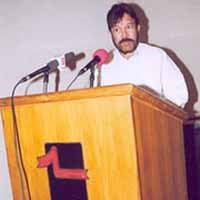
Lifetime achievement award honour for Rajesh Khanna at IIFA 2009
Often termed as the first superstar of Hindi cinema, actor turned politician Super Star Rajesh Khanna will be honoured with the Lifetime Achievement Award at the Videocon IIFA Weekend, which will be held at The Venetian Macao-Resort-Hotel from June 11 to 13, 2009 in Macau.
Each year, IIFA 2009 honours a member of the Indian Film Fraternity with the Lifetime Achievement Award who has made innumerable contributions to Indian cinema, our sources reveal, keeping this in mind, the IIFA Advisory Board and the IIFA Management have zeroed down on Super Star Rajesh Khanna’s name for the tenth IIFA to be held at Macao.
Super Star Rajesh Khanna’s rise to stardom is considered phenomenal. One can recollect, from 1969 to 2009 (till date), the Super Star Rajesh Khanna phenomenon swept Indian cinema off its feet and the hysteria he generated was unlike anything seen before in Indian Cinema. Super Star Rajesh Khanna made his Bollywood debut with the 1966 film Aakhri Khat, followed by Raaz and Baharon Ke Sapne. But his act in films like Aurat, Khamoshi and Aradhana cemented his status as the new super talent par excellence in the Indian film industry. In 1983, Super Star Rajesh Khanna displayed a spectacular performance with his role in Avtaar. After establishing his mega star status, blockbuster films followed one after another, and women all over the country swooned over him and the men aped him.
Kaka as he is popularly known as, is still adored and fondly remembered by the masses and songs from his popular films are still loved even today. The previous recipients of this award were Lata Mangeshkar (2000), Waheeda Rehman (2001), Yash Chopra (2002), Dev Anand (2003), Yash Johar (2004), V.K. Murthy (2005), Asha Parekh (2006), Dharmendra (2007) and Mumtaz (2008).
http://www.youtube.com/watch?v=VNwEWSw8xLw



